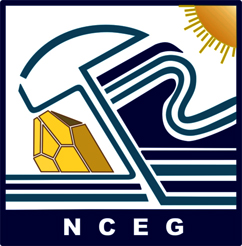Academic Career
- Post doctorate (CAS-TWAS)
- Ph.D Environmental Geosciences-University of Peshawar, Pakistan
- M.Sc Environmental Sciences-University of Peshawar,Pakistan
Research
Interest
- Assistant Graduate Studies Advisor
- Incharge Petrography and Thin Section Laboratory
- Subject Editor (Geology): Journal of Himalayan Earth Sciences (Scopus and Web of Science Indexed)
http://nceg.uop.edu.pk/researchjournal.html
Research Interests
- I am primarily interested in understanding the Environmental Segments viz., Food Chain Contamination and
Health Risk of heavy metal(loids)/trace elements, Remediation of Contaminated Soil and Water, Pesticide
Bioaccessibility and Bioaccumulation and Pollution Bioassay. Climate Change/Global warming
- I am an HEC approved PhD Supervisor since 2012.
- I have more than 60 research publications with over
1900 citation (i10-index 30,h-index 19) & above 150 cumulative impact factor to my credit as first, corresponding and co-authors (https://scholar.google.com.pk/citations?user=juW30HcAAAAJ&hl=en),
(https://www.researchgate.net/profile/Said_Muhammad)
and has produced around a dozen of postgraduate students in the subjects of my interest.
- I have carried out as a PI a research project entitled
“Pollution Assessment of Landfill Sites in the Hattar Industrial Estate (HIE)
using Integrated Geochemical and Geophysical Techniques”. This project is
sponsored by Higher Education Commission through HEC-NRPU program.
Key Publication in 2018-2019
- Ingestion
of arsenic contaminated drinking water leads to health risk and traces in human
biomarkers (hair, nails, blood and urine), Pakistan. 2019. Rehman, U., Khan,
S., Muhammad, S.*, Exposure and Health. Netherlands. Accepted. DOI: 10.1007/s12403-019-00308-w. IF 4.85.
- Spatial distribution of potentially toxic elements in urban
soils of Abbottabad city, northern Pakistan: evaluation for risk assessment. 2019. S.
Jadoon., S. Muhammad*, Z. Hilal, M. Ali,
S. Khan, N. U. Khattak., Microchemical Journal. Netherlands. Accepted. IF 3.21.
- Unrevealing the biosorption capacity of freshwater algae biomasses for toxic heavy metals
in aqueous solutions. 2019. Shamshad, I., Khan, S., Muhammad, S.*, Waqas, M., Desalination and
Water Treatment. Italy. Accepted IF 1.63.
- Contrasting Environmental Factors Drive Bacterial and
Eukaryotic Community Successions in Freshly Deglaciated Soils. 2019. Khan, A.,
Kong, W., Muhammad, S., Wang, F., Zhang, G., Kang, S., FEMS Microbiology Letters. England. Accepted IF 1.99.
- Unraveling the phytoremediation potential of Parthenium hysterophorus: Expression study of
glutathione reductase and phospholipase D-a genes. 2019. Ahmad, R., Tehsin, Z.,
Hussain, J., Abbasi, G.H., Muhammad, S.,
Shah, M.S., Khan, S.A., Polish Journal of Environmental Studies. Poland. Accepted.
IF 1.19.
- Bacterial contamination in drinking water of urban Peshawar: A comparative study at the
sources and user points of tube wells. 2019. Khan, S., Ali, S., Muhammad, S., Khan, B., Ali, A., Hesham,
A.L., Begum, S., Desalination and
Water Treatment. Italy.Accepted IF 1.63.
- Heavy metals contamination in soil and food and their evaluation for risk assessment
in the Zhob and Loralai valleys, Baluchistan province, Pakistan. 2019. Muhammad, S*., Ullah, R., Jadoon,
I.A.K., Microchemical Journal. Netherlands. DOI: https://doi.org/10.1016/j.microc.2019.103971.Accepted. IF 3.21.
- Mercury Contamination in Water, Sediments,
and its Associated Health Risk: A Case Study along the Artisanal Gold-mining.
2019. Riaz, A., Khan, S., Muhammad, S*.,
Shah, M.T., Mine Water and the Environment. Germany. 38, 847–854. DOI:
10.1007/s10230-019-00613-5. IF 2.15.
- Assessment of produced wastewater quality of oil and gas
exploration in Fateh Jang, Pakistan. 2019. Khan, S.A., Khan, H., Ishtiaq, M., Muhammad, S.*, Fresenius
Environmental Bulletin, Germany. 28, 8341-8348. IF 0.67.
- Potentially toxic elements contamination in water and evaluation for risk assessment in the Rawalpindi, Pakistan. 2019. Khan, S.A., Abeer, N., Hussain, S.Z., Muhammad,
S.*, Jawad, F., Khan, T., Desalination and
Water Treatment. Italy. 159,327-337. DOI:10.5004/dwt.2019.24145. IF
1.63.
- Potentially harmful elements contamination in water and sediment: evaluation for risk
assessment and provenance in the northern Sulaiman fold belt, Baluchistan, Pakistan. 2019. Ullah, R., Muhammad,
S*., Jadoon, I.A.K.,Microchemical Journal. Netherlands. 147:1155-1162. DOI:
https://doi.org/10.1016/j.microc.2019.04.053IF 3.21.
- Potentially toxic elements in drinking water and associated health risk assessment in Abbottabad city, Northern Pakistan. 2019.
Jadoon, S., Hilal, Z., Ali, M., Muhammad,S.*, Desalination and Water Treatment. Italy. 151: 392-402.DOI: 10.5004/dwt.2019.23909. IF 1.63.
- Hydrochemical properties of drinking water and their sources apportionment of pollution in
Bajaur Agency, Pakistan. 2019. Jehan, S., Khan, S., Khattak, S.A., Muhammad, S., Rashid, A., Muhammad, N.
Measurement. England. 139: 249-257. DOI:
https://doi.org/10.1016/j.measurement.2019.02.090. IF 2.79.
- Ecological and health risk assessment of heavy metals in the Hattar Industrial Estate,
Pakistan. 2018. Jehan, S., Khattaka, S.A., Muhammad,
S.*, Ahmad, R., Farooq, M., Khan, S., Khan, A., Ali, L., Toxin Reviews. United
States. Accepted. DOI:https://doi.org/10.1080/15569543.2018.1478858. IF 3.84.
- Human Health Risk Asessment through Consumption of Organophosphate Pesticides in
Drinking Water Sources of Peshawar Basin, Pakistan. 2018. Ali, N., Kalsoom, Khan, S., Ihsanullah, Rahman, I., Muhammad,
S., Exposure and HealthNetherlands. 10:259-272. DOI:10.1007/s12403-017-0259-5. IF 4.85.
- Associations of potentially toxic elements (PTEs) in drinking water and human biomarkers: a
case study from five districts of Pakistan. 2018. Rehman, U., Khan, S., Muhammad, S*., Environmental Science
and Pollution Research. Germany. 25 (28):27912-27923. DOI:10.1007/s11356-018-2755-y.
IF 2.91.
- Shallow water proved higher levels of potentially harmful elements and human health
risk along the Sadkal oil exploration and production. 2018. Khan, S.A., Khan, H.,
Ishtiaq, M., Saddique, U., Muhammad, S.*,
Farooq, M., Desalination and Water Treatment. Italy. 114:146-154.DOI:10.5004/dwt.2018.22385. IF 1.63.
- Potentially toxic elements in soil of the Khyber Pakhtunkhwa province and Tribal areas,
Pakistan: evaluation for human and ecological risk assessment. 2018. Saddique, U., Muhammad, S.*, Tariq, M., Zhang,
H., Arif, M., Jadoon, I.A.K., Khattak, N.U., Environmental Geochemistry and Health. Netherlands. 40(5):2177-2190. DOI:https://doi.org/10.1007/s10653-018-0091-2. IF 3.25.
- Potential harmful elements in coal dust and human health risk assessment near mining
areas in Cherat, Pakistan. 2018. Ishtiaq, M., Jehan, N., Khan, S.A., Muhammad, S.*, Saddique, U., Iftikhar,
B., Zahidullah. Environmental Science and Pollution Research. Germany. 25,
14666-14673. DOI:10.1007/s11356-018-1655-5. IF 2.91.
- Mercury contamination in selected foodstuffs and potential health risk assessment along the artisanal gold mining, Gilgit-Baltistan, Pakistan. 2018. Riaz, A., Khan, S., Muhammad, S.*, Liu, C., Shah, M.T., Tariq, M., Environmental Geochemistry and Health. Netherlands. 40(2), 625-635. DOI:10.1007/s10653-017-0007-6.IF 3.25.
*Corresponding author
|

